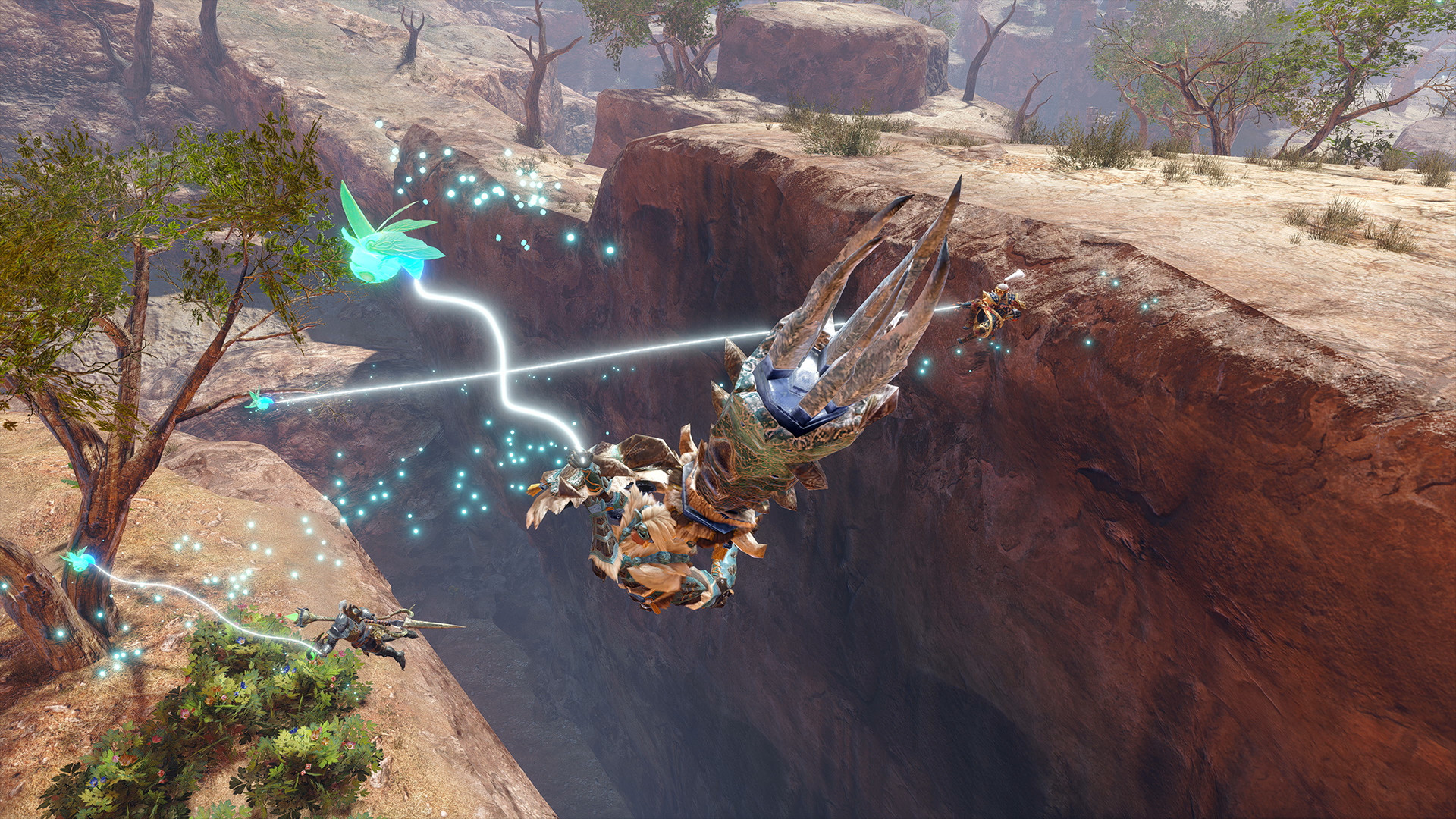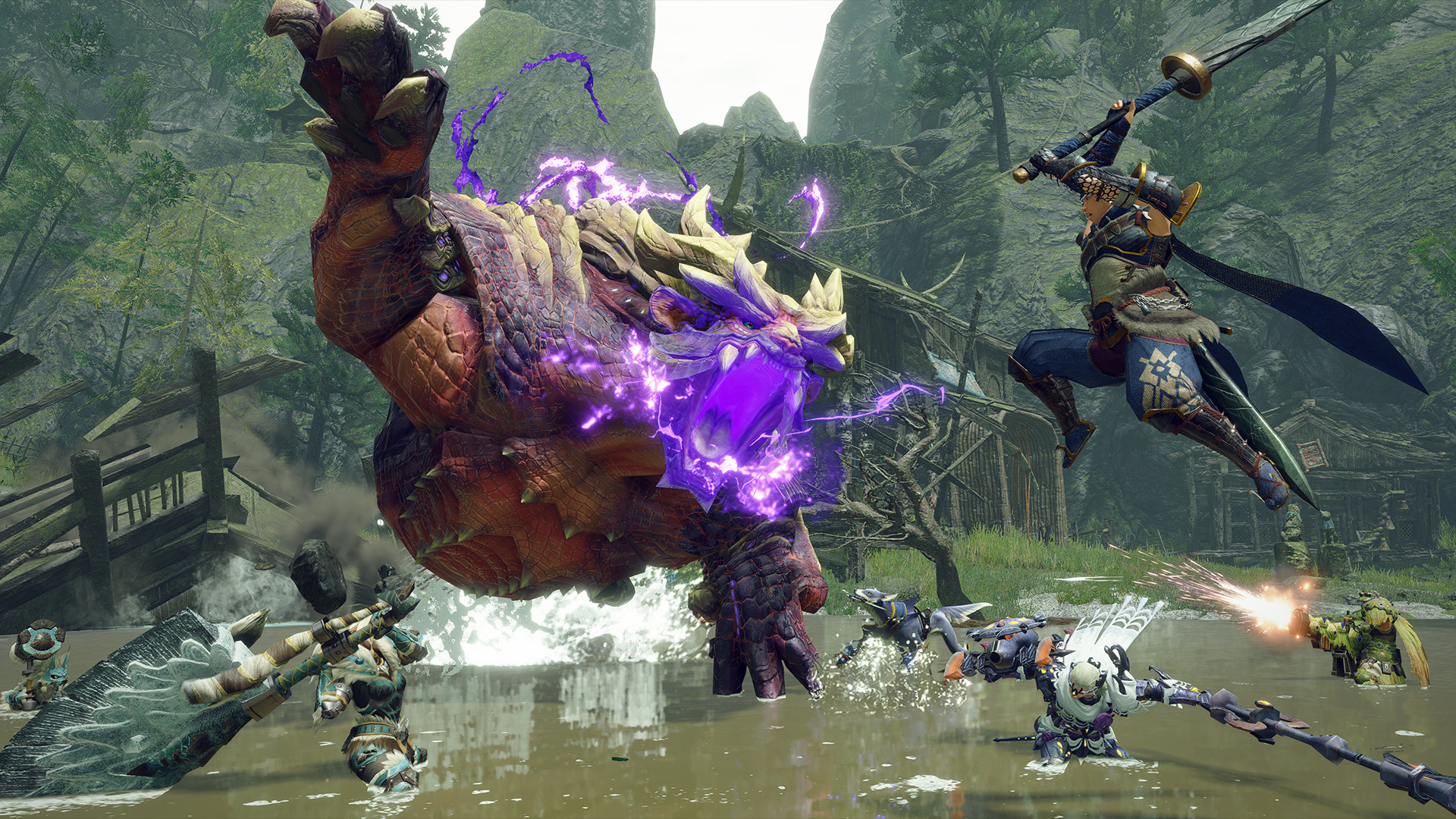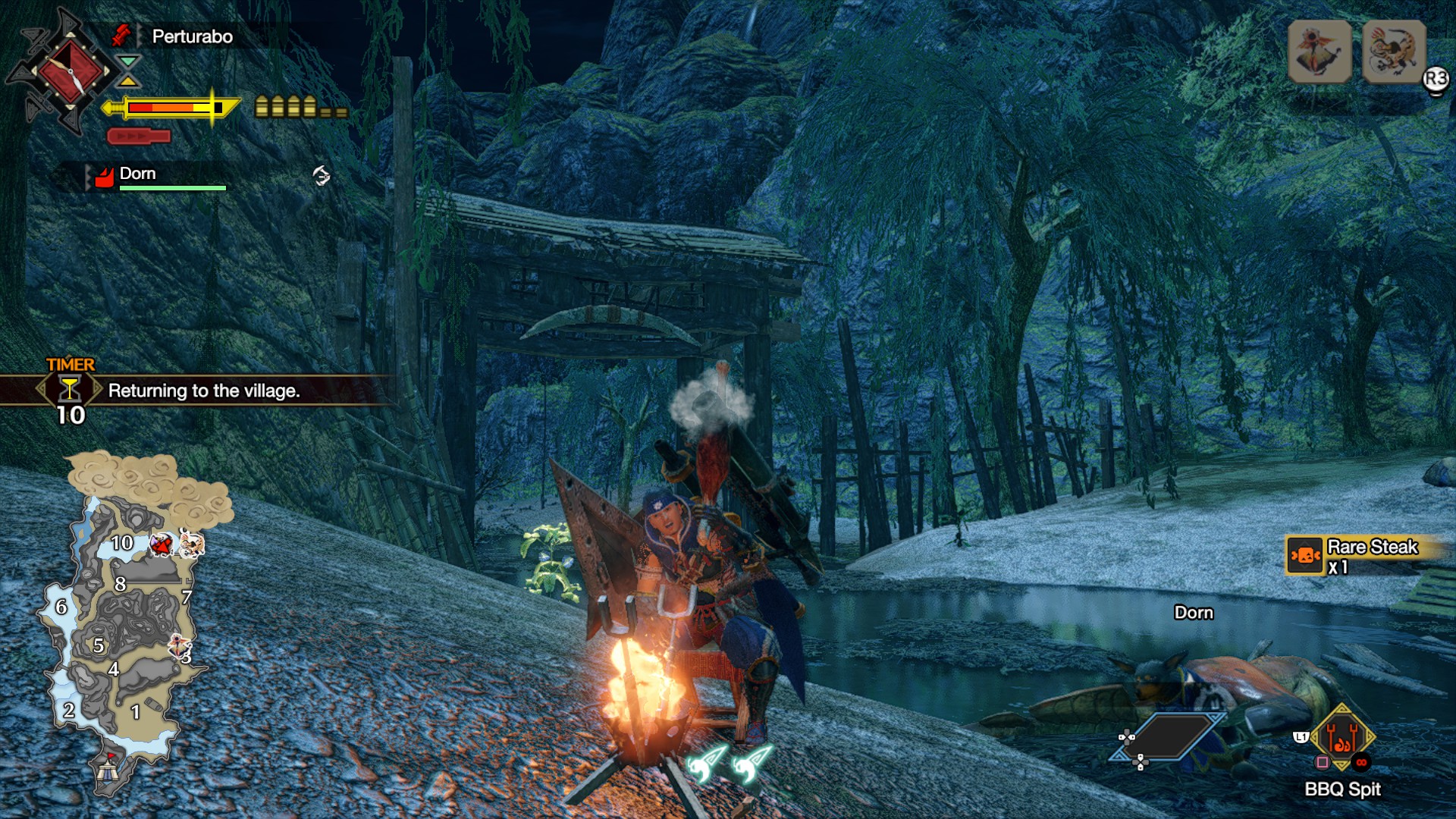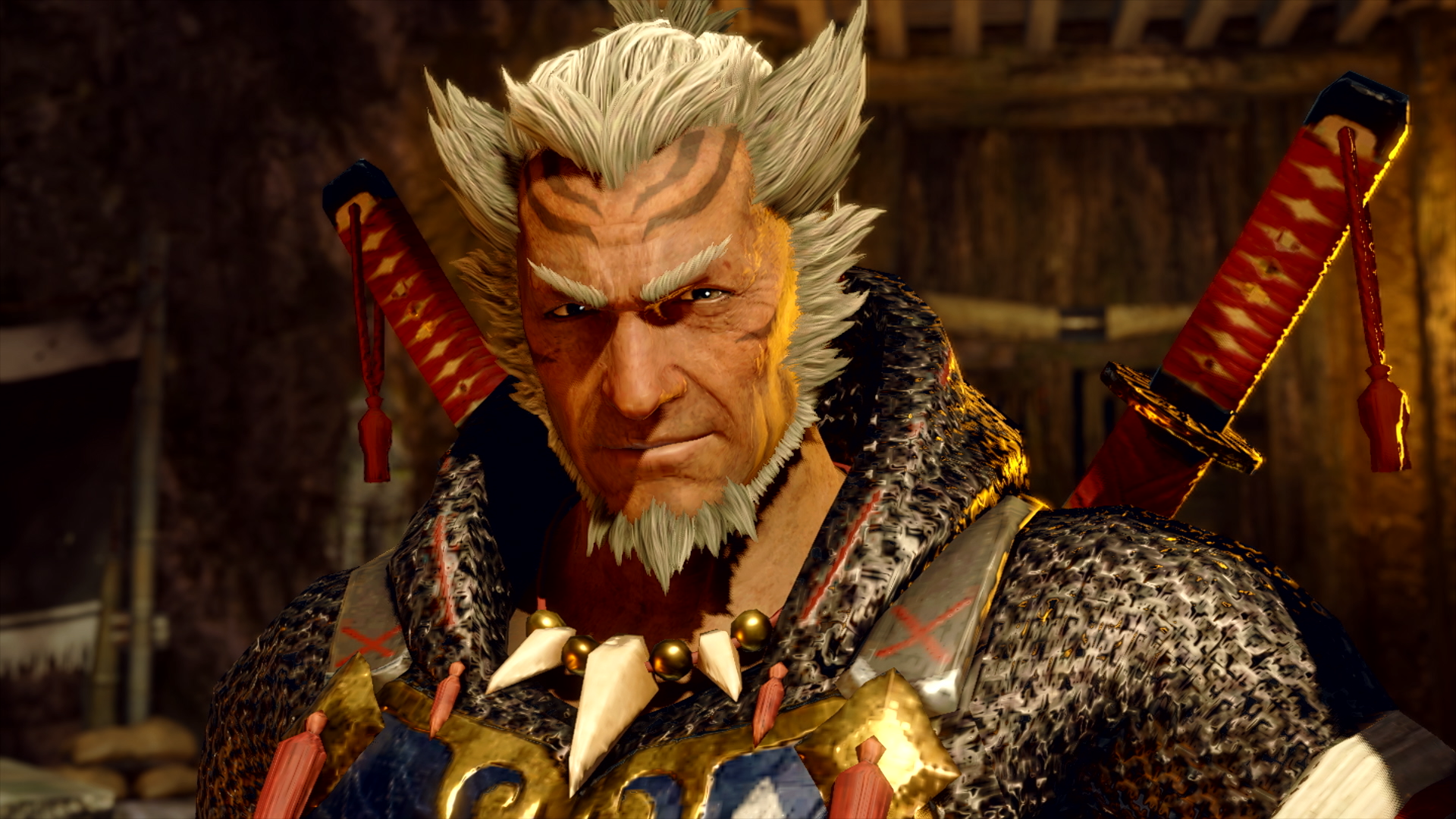Our Verdict
Monster Hunter: Rise is arguably the greatest entry in Capcom's flagship series, and a game that simply never stops giving.
PC Gamer's got your back
What is it? Murder monsters then make cute hats out of their faces.
Expect to pay £50/$60
Developer Capcom
Publisher Capcom
Reviewed on GeForce GTX 1070, 16GB RAM, i7-7700HQ
Multiplayer 4-player co-op
Link Official site
A genuine pleasure over my lifetime in gaming has been watching Monster Hunter go from a niche favourite to wild success in Japan, and gradually making inroads in the west before—with Monster Hunter: World—smashing through and becoming a global hit. That's perhaps over-simplifying the arc for Capcom's beast-bashing grindathon par excellence, but the series now has a huge fanbase and the kind of resource behind it that has resulted in years of better and better games, as well as a distinct split.
There's the Monster Hunter: World take on the series, which has the fundamentals but is a seriously big-budget endeavour—a visual and aural spectacle with gorgeous, flowing animations and jaw-dropping monsters. Monster Hunter: Rise is the other branch, following in the footsteps of games like Generations and hewing closer to the series' portable heritage: Smaller, more contained maps rather than larger more open-world style exploration.

Rise was, of course, originally designed as a Nintendo Switch exclusive and, though this PC release is a good port with everything you'd expect, it has nowhere near that immediate visual 'wow' factor that World did. Nor can it compete on things like textures or the stunning bespoke animations for monsters fighting each other.
Thing is, though, Rise is the better game.
Monster Hunter's problem for new players is also the game's main strength: This is a combat system of almost unparalleled depth and precision, with literally dozens of fundamentally different playstyles. It's overwhelming at first. Rise has easily the best onboarding experience in the series, and in the process introduces several new mechanics that enhance the hunting experience even beyond Generations.
One of the most fun additions is your Palamute, a rideable dog. You've still got your Palico, of course, but the dog transforms the game's traversal which, arguably, was always a weak—or at least not standout—element. Series veterans will recall many a long slog across maps you know like the back of your hand, simply because that's the way things were, but in Rise your options with and without the dog now include wall running and a Spider-Man-style grapple that doubles up as an essential battle tool. You can not only get around faster than ever, but it feels amazing to do so.
This in turn changes up the rhythm of fights but in an awesome way. In older Monster Hunters, there always comes the point in a fight where your quarry realises they're in a spot of bother and takes off. You could very rarely stop them escaping or interrupt these movement sequences, but now, you just instantly hop on the dog and give chase. This may make me sound slightly psychopathic but it is enormously satisfying to chase down a wounded creature trying to escape, and set about it with your mates.

Performance was smooth on a GTX 1070—not that you'd expect any different. Rise does suffer from screen tearing on occasion, though I didn't notice any frame drops or other performance issues. There are some basic presets before the graphics settings allow you to turn a wide range of options on or off, as per your preference, as well as support for ultrawide monitors and an uncapped framerate.
The obvious caveat here is that, if you're playing this in 4K on max settings with a mega rig… it's never going to compete at that level. If you can stomach a few jagged edges and fuzzy textures, however, the art style more than makes up for the lack of grunt.
There's a quality to Rise that maybe isn't obvious, which is that it has stripped away an enormous amount of the busywork the games used to come with. You used to have to look up what the 'key quests' for each hunter rank were online, for example, whereas now the game just tells you. The upgrade trees for weapons have been made clearer. There's a mini-tutorial or guidance mission for every important element. It punts all the stuff that was a bit annoying.
In turn this means you spend most of your time playing Monster Hunter: Rise actually hunting monsters rather than fiddling around in menus or trying to work out what to do next, and hunting is absolutely why I play these games. You can zoom through hunts with almost zero downtime, and combined with the generally faster pace of the game it makes Rise feel so much more pacey and vibrant than the older titles. The sense of verticality it has in the locations and the way you zip around them soon becomes second nature, and it really feels like from the opening seconds the chase is on.
Monster Hunter has always been unforgiving: if you take its monsters lightly, even the weediest will quickly dispatch you. Rise follows the usual pattern of setting you off against small dinosaur-like creatures like the Great Baggi or Great Wroggi before introducing the wilder, weirder stuff like Tigrex, the stone-cold classics like Rathalos, and the (mostly) awe-inspiring fights against the Elder Dragons.

It's actually difficult to describe a 'typical' hunt in Monster Hunter: Rise because part of the game's inexhaustible quality is that there are so many dozens of large monsters by now it can mix-and-match them in endless new combinations. It's also less shy than ever before about having monsters fight one another, which used to happen rarely in the older games but is now very frequent (you can also temporarily 'ride' the monsters during these and enjoy a Godzilla moment).
This may make me sound slightly psychopathic but it is enormously satisfying to chase down a wounded creature trying to escape.
The monsters look absolutely amazing, and the older ones have more aggressive and surprising behaviours than ever. This game is a riot: I went with gunlance (again) because I love it, and the weapon has certain familiar moves but also a whole bevvy of new ones that make it feel completely new. The more Rise you play, the more it has to give. You begin unlocking special moves that give each weapon's moveset a new angle of approach, or a ten-tonne slam for when it's needed (Gunlance's big downside was always low mobility, but in Rise this feels irrelevant when you're doggo-sprinting, grappling, and force-blasting across the landscape). Sometimes you try out a new ability, process what has just happened, then mime a chef kiss and give silent thanks to the Capcom brain that thought it up.
The sheer variety of Rise's bestiary and weapons means that, even as the game cracks on at enormous pace, it doesn't stop serving up new stuff for a very long time. There's so much to do here, and it's all laid-out and explained better than ever, with all of the little fiddly bits that used to annoy players just gone. Sure, this might be a Nintendo Switch game in origin, and visually it shows. But who cares, because it's hard to shake the feeling that Monster Hunter Rise is as good as this series has ever been. Which is to say: As good as it gets.
Monster Hunter: Rise is arguably the greatest entry in Capcom's flagship series, and a game that simply never stops giving.

Rich is a games journalist with 15 years' experience, beginning his career on Edge magazine before working for a wide range of outlets, including Ars Technica, Eurogamer, GamesRadar+, Gamespot, the Guardian, IGN, the New Statesman, Polygon, and Vice. He was the editor of Kotaku UK, the UK arm of Kotaku, for three years before joining PC Gamer. He is the author of a Brief History of Video Games, a full history of the medium, which the Midwest Book Review described as "[a] must-read for serious minded game historians and curious video game connoisseurs alike."


